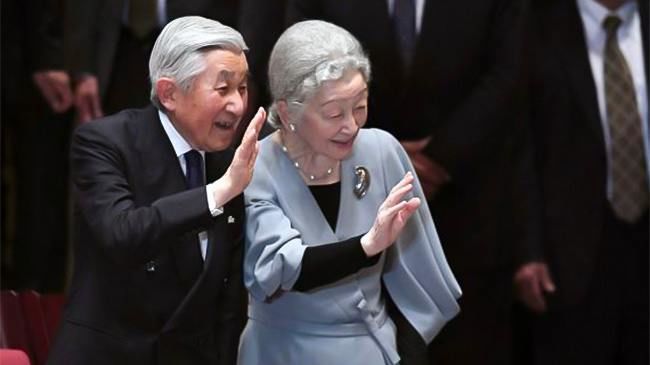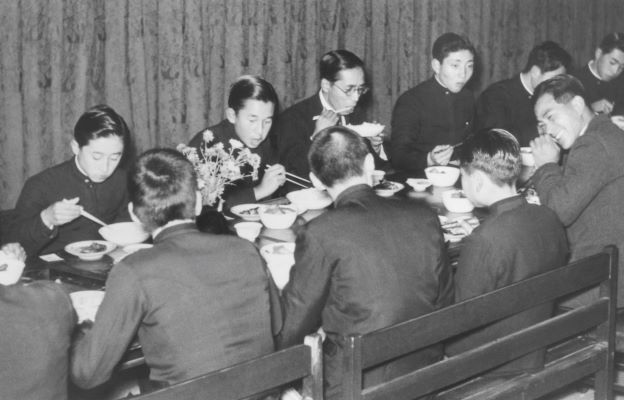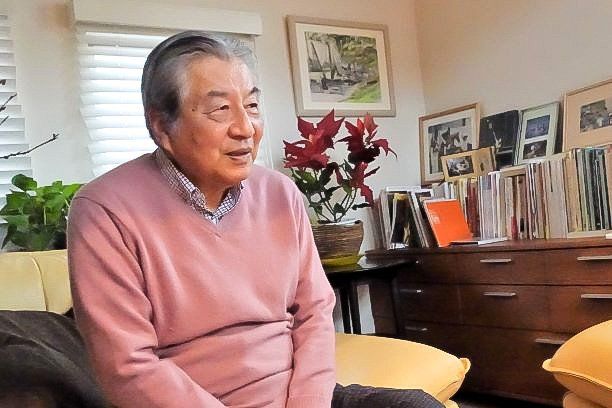
Coming of Age with Japanese Royalty: A Lifelong Friend Talks About Emperor Akihito
Society Imperial Family- English
- 日本語
- 简体字
- 繁體字
- Français
- Español
- العربية
- Русский
Japan’s new emperor Naruhito ascended the throne on May 1 following his father Akihito’s abdication, heralding in the Reiwa era. The last Japanese monarch to step down was Emperor Kōkaku, who retired in 1817 after reigning for close to four decades.
Japan has had no legal provisions for a monarch to abdicate since Emperor Meiji took the throne in 1867 and established the modern Japanese state. Against this background, Akihito’s unprecedented decision to relinquish the throne illustrates his strong desire to close out the Heisei era while still capable of fulfilling his duties.
Akashi Mototsugu, 85, a close friend of the emperor since early childhood, had no difficulty understanding this desire. Akashi was chosen as a playmate for Akihito when the two attended the Peers’ School (today’s Gakushūin) kindergarten 80 years ago. The pair continued their education at the same school for the next 12 years, and Akashi is one of a few classmates who knew the emperor during his formative years.
A Phone Call from the Emperor
The first hint that the emperor wished to abdicate came with a scoop by public broadcaster NHK on July 13, 2016. The next month, on August 8, the emperor addressed the Japanese public in a video message in which he related his concern that advanced age and declining health might make it impossible for him to fully carry out his duties.
Akashi relates how Akihito telephoned him two weeks before the video message. “The emperor spoke calmly and clearly over the phone,” he says. “The first thing he mentioned was his wife, Empress Michiko. When the media interviewed me after the NHK news report, I speculated that the emperor might be thinking of abdicating because of worry for Michiko’s health. Akihito assured me that this wasn’t the case and thought it would be a problem if people started believing that.”
Changing the Imperial House Law
Akashi says that Akihito then turned to the subject of abdication. “I felt he wanted me to see his point of view. He told me he had been thinking about abdicating for some time, and that as many past emperors had retired it should not be surprising for him to bring it up. He expressed hope that a practical, permanent path to abdication would be created. Referring to the role of the emperor, he said he opposed appointing a regent since in the case of his grandfather, Emperor Taishō, loyalty of retainers to either the emperor or the regent [Akihito’s father Emperor Hirohito] divided the court. Now, I don’t remember exactly every word he said to me, but that was the gist of his argument. My understanding was that he wanted the Imperial House Law amended so that he could abdicate under a permanent system.
“But that’s not how it turned out. In light of the emperor’s wishes, the government swiftly set up a panel to consider the matter, and the Cabinet put forward a one-off bill on December 8, 2017, allowing the emperor to abdicate. Hoping to repay, in some small way, Akihito’s kindnesses to me in the past, I did my best to convey to the government the emperor’s wishes for a permanent solution, but it seems they had decided on their policy from the start. I don’t know how Akihito felt about this development.”
Fairness Above All
Akashi’s grandfather, Akashi Motojirō, was an Imperial Japanese Army general who had distinguished himself as an intelligence agent during the Russo-Japanese war of 1904–05, and who later served as Governor-General of Taiwan. Given this family background, Akashi was, along with other boys in the Peers’ School kindergarten class, chosen as a playmate for Akihito. In secondary school, the two were members of the equestrian club, where they engaged in friendly rivalry, and although they went on to different universities at age 18, they have remained friends.
“After the war, when we were in lower secondary school, the boys in our group called each other by nicknames,” recalls Akashi. “Akihito was tanned from playing sports, and his complexion reminded us of old-style mosquito coil holders that were shaped like piglets and made of brown unglazed pottery, so we nicknamed him ‘Chub.’ We felt it was important to treat him just like an ordinary fellow and we never used honorifics with him. I’m not sure whether Akihito liked the nickname, but he was a good sport about it.”

Akihito and other Gakushūin students living in the school’s dormitory share a meal in December 1949.
According to Akashi, Akihito has remained the same over the years, disliking falsehoods and exaggeration and favoring fairness and justice. As Akashi recalls, “Akihito really disliked being given special treatment, and he always treated everyone fairly. For example, in secondary school he was captain of the equestrian club. He was really a fine rider, but some of the adults worried that he might be thrown from his horse so they arranged for him to ride a docile mount. However, Akihito insisted that as team captain it was his responsibility to ride a horse that had a chance of winning in competition. He chose the most temperamental horse in the stable and our team won.”
A Companionable Chat
Even after the two men had gone on to different universities, Akihito would telephone Akashi as the date for the annual alumni riding meet drew near. According to Akashi, he would always ask if the rules could be made fairer and would make various suggestions.
Akashi recall how at an alumni tree planting ceremony the head of the alumni association had readied a large plaque that read “Tree planted by His Majesty the Crown Prince.” Upon noticing this, Akihito questioned why the plaque mentioned only his name since they were planting the tree as a group. The plaque was still up the next year, and again Akihito complained about it. Akashi, hinting at Akihito’s distaste of being put on a pedestal, explains the episode simply: “That’s the kind of person the emperor is.”
On another occasion, Akashi says he and others were playing polo at the Tōgū Palace when the group sat down for a tea break. “Akihito invited the groom who cared for his horse and the young palace staff to sit with us around the table. When he noticed the horse van driver standing some distance away, keeping respectfully apart, he asked an attendant to call the man over, sat him down next to him on a bench with barely enough room for the two of them, and engaged him in casual conversation.”
Choosing Family Life
Over his reign, Akihito served as an exemplary symbol of the people, but also took the role of emperor in a new direction, striving to hold the public close to his heart. His views on the meaning of family influenced his approach. Taken away from his own parents at the age of three, Akihito was raised by a retinue of adults at the Tōgū Palace. When it came time to have a family of his own, he wanted to do things differently. Akashi relates that unlike previous emperors, “Akihito wished to live with his wife and children in his own household and enjoy life like a regular person. Otherwise, he would not understand the concerns of ordinary people, a sentiment that, given his personality, I really understand.
“Throughout his reign, Akihito pondered the symbolic role of the emperor that began during his father’s reign and chose an approach that personified the idea of the emperor as a human being. For example, going against precedent he married Michiko, a commoner, and the couple raised their children themselves in order to enjoy family life just like other people. But in some quarters there was concern that this attempt to appear ‘ordinary’ was not in keeping with the role of emperor and would erode the prestige of the throne. I think he struggled to strike a balance between those two images.”
A Politically Neutral Stance
Akashi feels Akihito’s ideals of favoring what is fair and just and prizing family life reshaped the image of the royal family. “I believe some of the great accomplishments of his reign are his many trips to pay respect to the war dead and offering comfort to victims of natural disasters and other calamities,” says Akashi. “But personally, I hope that he will play an even greater role after retirement by speaking out, for example, about human rights issues or Japan’s diplomacy, setting himself apart from the country’s administration and acting above the political fray. I believe this will give meaning to the future of the imperial family.”
(Originally published in Japanese. Reporting and text by Iida Mamoru. Edited by Power News and Nippon.com. Banner photo: Emperor Akihito and Empress Michiko attend a benefit concert for a children’s cancer charity on July 6, 2016. © Jiji.)
